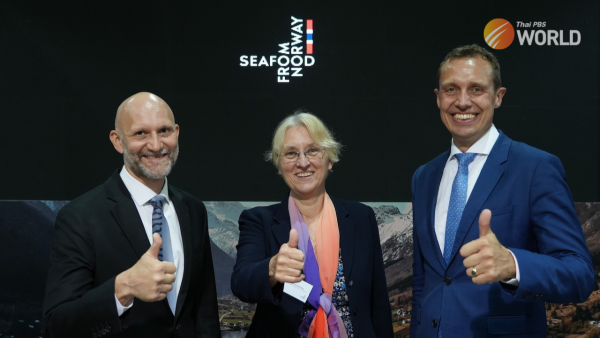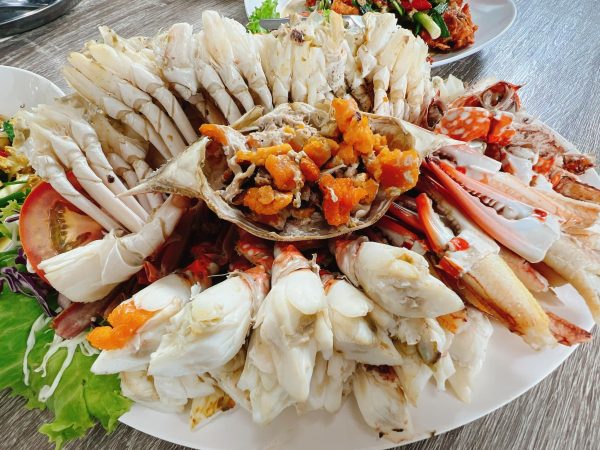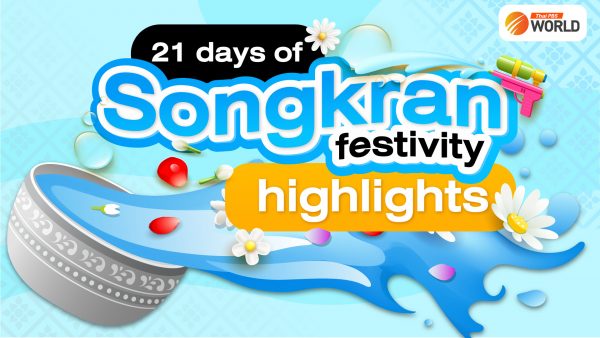From sushi to salmon curry: Norwegian seafood makes its presence felt

Back in the 1980s, the Norwegian salmon industry found itself facing a major problem: it simply had too much salmon and not enough markets to which it could be sold. After much head-scratching, they decided to resolve the problem by introducing “Project Japan” and set out to convince first the Land of the Rising Sun and then the rest of the world that salmon sushi and sashimi were the next big thing.
The marketing ploy worked and before long, traditional Japanese dishes made with raw salmon were being enjoyed globally. But while that success made Norway’s seafood exports soar, it also led consumers to believe that their sushi was made from Japanese salmon.
Thailand, which is the biggest importer of Norwegian seafood importer in Southeast Asia, was no exception and it wasn’t until recently that consumers started to realise that the salmon they enjoy hails from Norway and not Japan. In fact, the Norwegian Seafood Council (NSC) has been actively promoting their famed product with the tagline “Salmon from Norway” at points of sale and in commercials with Thai-Norwegian actress Urassaya “Yaya” Sperbund as the presenter.
A recent survey shows that more consumers are more aware of the source of salmon, with 56% of Bangkokians identifying Norway as the source. “Norwegian salmon is finally more famous than Japanese salmon. It’s the ‘Yaya Effect’,”, said Asbjørn Warvik Rørtveit, NSC’s Southeast Asia Regional Director.

Rørtveit was speaking at this year’s THAIFEX-Anuga Asia 2023, the biggest regional beverage and food trade fair, where he welcomed more than 20 Norwegian exporters to the Seafood from Norway Pavilion. Astrid Emilie Helle, Norway’s ambassador to Thailand and the NSC’s CEO, Christian Chramer, attended the special showcase of a wide range of premium seafood and the latest aquaculture innovations and technology from Norway.
“We’ve always been a seafood nation. Thirty years ago our government won the battle with seafood. Now we’re the second largest world seafood exporter and last year we exported about 1.3 million tonnes of seafood” said Ambassador Helle.
Now that salmon from Norway has become a favourite choice, the seafood nation has an ambition goal to repeat its sushi success story with other national dishes. In Thailand, NSC has actively promoted other seafood products including fjord trout and mackerel (saba). The next step will see the NSC promote salmon and fjord trout in Thai cuisine on TV in August and September. Using both as the main ingredients of famous and common Thai dishes will certainly increase their visibility among Thais.

Challenges in the years to come
Seafood from Norway has enjoyed a healthy growth in Thailand together with the rising popularity of Japanese food. In 2022, total seafood imports from Norway totalled 9.7 billion baht, a 46% surge in value from 2021. However, in terms of volume, growth was lower at just 9% mainly due to the higher prices of salmon. Although NSC wants to make its product more accessible, they have had no option but to increase prices thanks to higher costs caused by the war and high fuel prices.
Compounding the problem are environmental concerns that have resulted in supply being scaled back. As much as the NSC wants to sell larger quantities at more affordable prices, they have to adhere to sustainable practices, which are also a major selling point.
Rising food prices and environmental challenges are causing stress to the food systems across the globe. The seafood industry, as a provider of sustainable alternative supplies of high-quality protein, plays an important role, with Norway, as the world’s second-largest seafood exporter, helping to improve food security issues in Thailand, Asia, and beyond.
“Norwegian seafood such as salmon, fjord trout and Norwegian saba are products of sustainable farming and fisheries that have been enjoyed by most Thais for the past 10 years,” Rørtveit said.
Marketing the seafood means the NSC also promotes knowledge on innovation in aquaculture and sustainability in Thailand, The Seafood from Norway trademark is undoubtedly beneficial to the aquaculture industry, as well as to Thai consumers and local businesses in identifying the source of a sustainable alternative supply of high-quality protein.
By Thai PBS World Feature Desk






